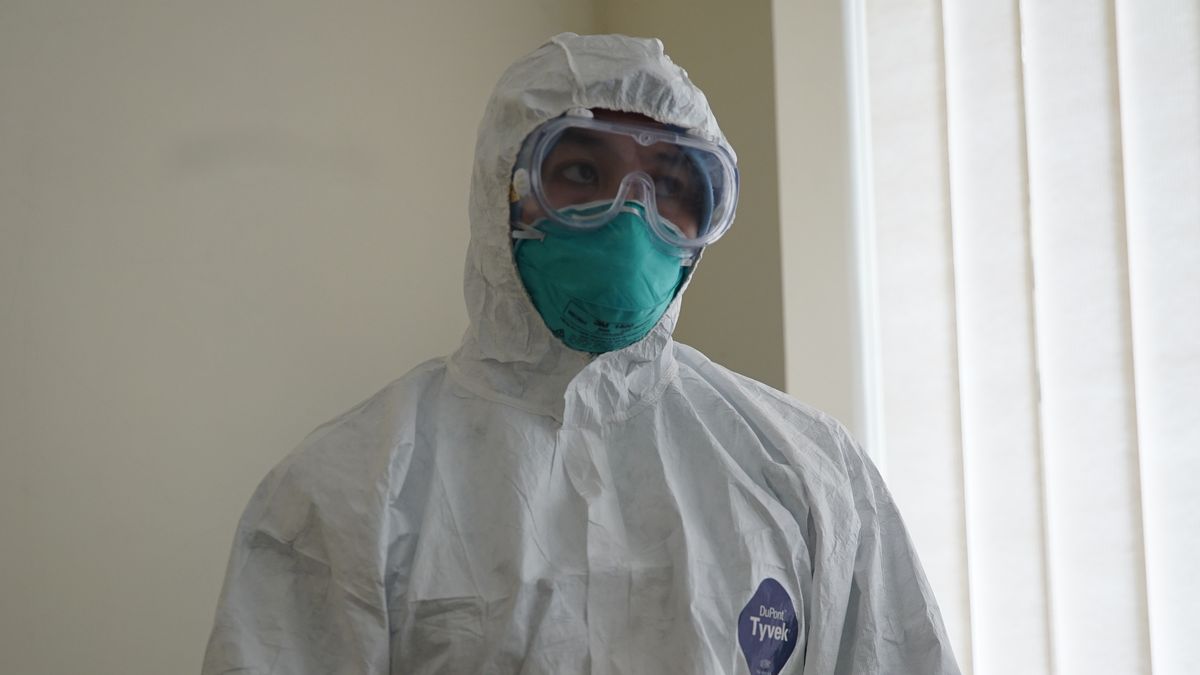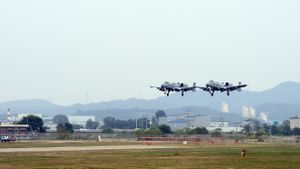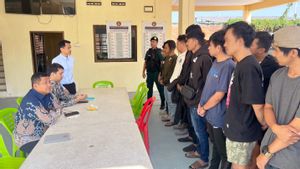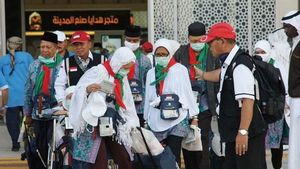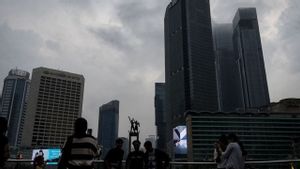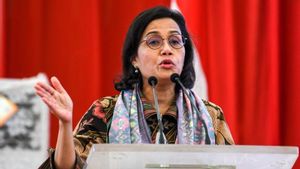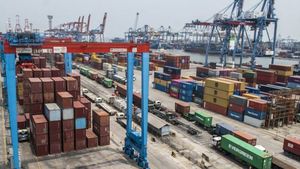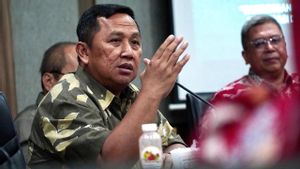JAKARTA - The chaotic handling of the corona virus or COVID-19 pandemic has returned to the fore after the Ministry of Health (Kemenkes) claimed that the national textile and textile product (TPT) industry was unable to meet the need for personal protective equipment (PPE). The Indonesian Textile Expert Association (IKATSI) assessed this was due to the mafia of medical devices (medical equipment).
Chairman of IKATSI Suharno Rusdi said the mafia imports medical equipment is acting up again. They have penetrated the lobby to include imported goods so that it has made the national textile industry bite its fingers again.
Rusdi explained that the garment capacity and convection IKM which reached 2.5 million tons per year or around 600 million pieces per month could very well meet the needs of PPE, especially Hazmat and Gown, which is estimated to reach only 10 million pieces per month.
"We can even fulfill the raw materials from cloth, yarn to fiber from within the country, with an average capacity of over 2.5 million tons per year," he said, in a written statement received by VOI, Monday, May 18.
Rusdi revealed, in the midst of this pandemic, the Ministry of Health required spunbond non-woven raw materials so that imports could enter freely. In fact, PPE materials made from woven or woven fabrics that were developed together with the National Disaster Management Agency (BNPB) have been tested at the Center for Textile Testing (BBT) and the Agency for the Assessment and Application of Technology (BPPT). The results have met the Hazmat and Gown standards from WHO. The price is cheaper, it is safer and more comfortable to use.
Based on the study of textile expertise at IKATSI, he said, for water and blood penetration of woven and non-woven materials the ability is the same because they use the same coating or lamination technology. However, woven material is more tear resistant, flexible and breathable than non-woven material so it is safer and more comfortable when worn by health workers.
"Woven is much cheaper, because the non-woven spunbond uses Polyprophilene, which has almost doubled the price because it is used as a raw material for masks," he explained.
Rusdi explained that the national non-woven production capacity that can be supplied to PPE is only around 1 million pieces per month, if from woven materials the supply capacity can be more than 375 million pieces of PPE per month.
"So don't be surprised if many producers force PPE exports, because there are lots of local stocks. If there are local producers who claim to be able to supply PPE from non-woven products for more than 1 million per month, it must be examined again, because they must mix with imported PPE. brokers under the guise of producers who have production permits, distribution permits, as well as import permits, "he said.
According to Rusdi, this condition is the answer from the Minister of BUMN regarding our dependence on imported medical equipment, because local producers are always cornered by imported goods so that producers are reluctant to carry out production and choose to close their factories.
"The penetration of the import mafias is so strong that it should be a concern of law enforcers, such as the case of 27 textile containers in Batam," he said.
In addition, the Secretary General of the Indonesian Fiber and Filament Yarn Producers Association (APSyFI), Redma Gita Wirawasta, confirmed that his party produces PPE, especially Hazmat and Gown, based on BNPB's direction regarding its standards to meet WHO criteria.
Furthermore, he said, APSyFI members have also supplied fibers, yarns and even woven fabrics, while members of the Indonesian Textile Association (API) produce fabrics and garments.
"So with the direction from the BNPB, from upstream to downstream we immediately made PPE according to WHO standards, because we heard that medical personnel in the field were short on PPE. Moreover, in our warehouses there are lots of fabric and yarn stocks so the process is faster," he said.
Disappointed to the GovernmentCurrently, some API and APSyFI members are disappointed that the government does not absorb the PPE products they are working on on the grounds that they prioritize non-woven spund bond materials which can only be used once and then thrown away.
"In fact, in the midst of this COVID-19 pandemic, PPE production can help the company's financial condition, especially to pay employee salaries, even though this is only about 3-5 percent of the total production that is usually done under normal conditions," he explained.
Behind this PPE production there are also thousands of workers and dozens of companies involved. Redma said, the 10 million pieces of PPE per month were done by 15 thousand people in the garment, 10 thousand people for the production of 30 million meters of fabric, and 7 thousand people for the production of 2500 tons of yarn and 5 thousand people for the production of 2500 tons of fiber, so a total of 37 thousands of workers in about 20 companies.
"If it is filled with imports, how many workers are involved? How much foreign exchange is wasted ?," he said.
The Executive Secretary of the Indonesian Textile Association (API), Rizal Tanzil stated that his party still hopes that the government can absorb local PPE. Because even though it is only about 5 percent of normal production, it can at least absorb local workers who are in trouble during this pandemic.
"Because the priority of using domestic products should be implemented, not just lip service," he explained.
The English, Chinese, Japanese, Arabic, and French versions are automatically generated by the AI. So there may still be inaccuracies in translating, please always see Indonesian as our main language. (system supported by DigitalSiber.id)
